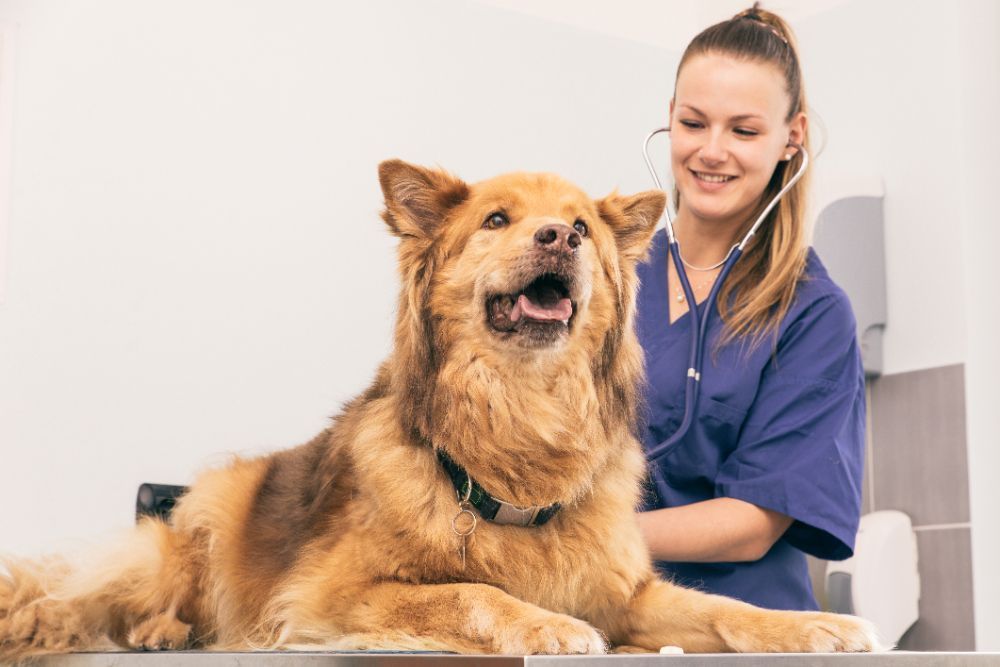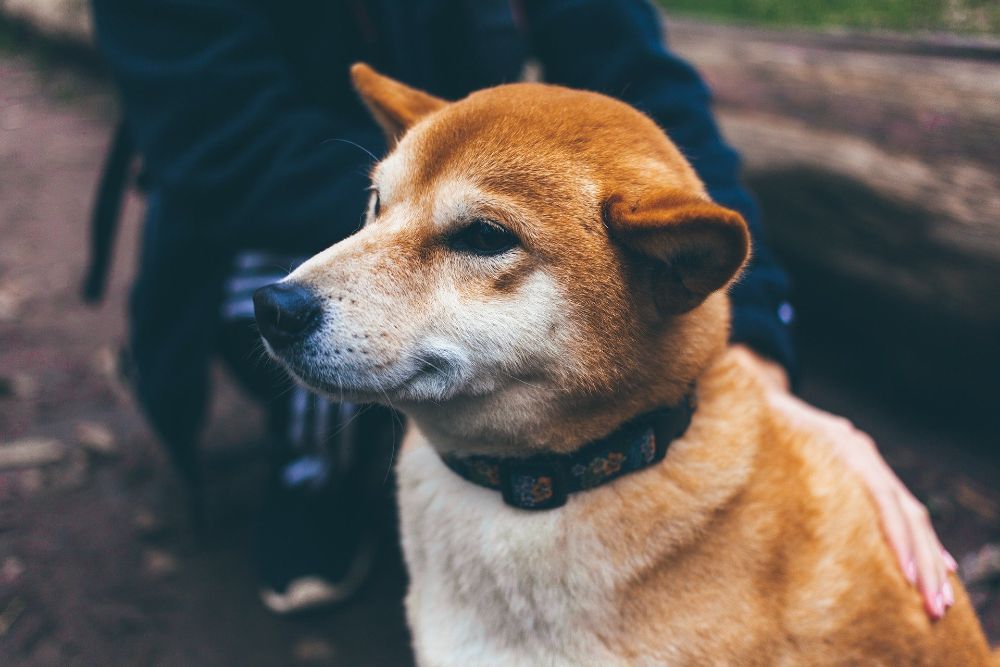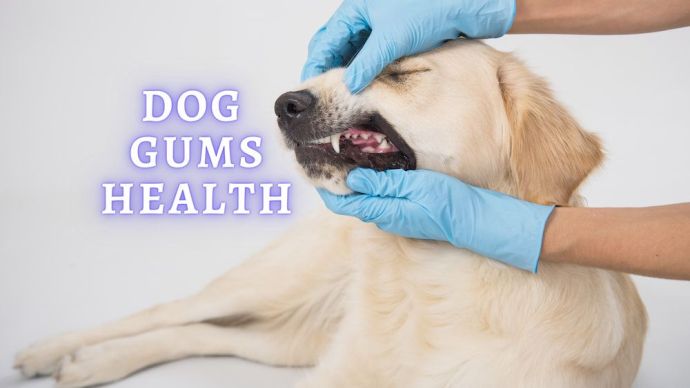Why is my Dog throwing up: Causes and Preventing (Veterinary Advice)
Written by:
Author: Dr. Chyrle Bonk
Dr. Chyrle Bonk is an associate veterinarian since 2010 and was a volunteer for Clearwater County Youth 4H. Dr. Bonk contributed to various animal and veterinary related websites and magazines as a way to help keep animals across the globe safe and healthy. When Chyrle not working she spends her time with her own furry crew of dogs, cats, and horses.
View all 10 articlesLearn about our editorial process and veterinary review board.
Viewed: 21800
Updated on: 06/14/2023
Your dog’s five in the morning, alarm-like vomiting just took place like it does nearly every week. Even though your dog seems perfectly fine the rest of the time, these weekly or sometimes more frequent occurrences have been going on for several months. Sure, it’s normal for a dog to vomit every once in a while, but is a dog vomiting once a week or every couple of days still considered normal? What’s behind these intermittent episodes and what can you do to help stop your dog’s vomiting?
Occasional vomiting and dogs seem to go hand in hand. Rarely have I run across a dog parent that hasn’t mentioned vomit here and there. The usual culprit behind a dog’s spotty vomiting is dietary indiscretion. They just can’t help themselves when it comes to tasting what’s in the trash can or any of the little nuggets left under the dining room table.
However, in some cases dogs may vomit more than just here and there. Rather it seems like you can tell the day of the week by whether or not your dog has vomited and it becomes a completely different matter. With that in mind, let’s look at some of the possible causes behind why a dog would be vomiting once weekly, or intermittently, and how you may be able to stop it.
READ MORE: Best Small Breed Puppy Food
What is Intermittent Vomiting in Dogs?
Intermittent simply means irregular or not continuous and steady. You’re probably thinking that all vomiting in dogs should be considered irregular and not continuous, but intermittent vomiting more accurately describes those that vomit on a semi-regular basis. It may be every day, or others every couple of days, once a week, or a few times a month. This vomiting is continuous in that it goes on for months instead of isolated occurrences, like what may happen after an unsupervised trip outside.
Intermittent vomiting isn’t steady like that you would see with illnesses, like parvo or gastroenteritis. It’s usually a one-and-done event when it does occur instead of the repeated vomiting within a span of several hours. Maybe the most perplexing about intermittent vomiting is that your dog usually doesn’t seem otherwise sick. They may act a little nauseous immediately before and after puking, but then return to their normal antics within a couple of minutes of the slimy event.
READ MORE: Dog Eats Everything
Causes of Intermittent Vomiting
One vomiting episode with your dog is bad enough, but when it’s repeated once a week or more often, most dog parents are going to be concerned and start looking for answers. Unfortunately, in most cases, the causes of intermittent vomiting in dogs is hard to pin down and is something that you should enlist the help of your veterinarian with, but here are some possible causes:
1. Bilious Vomiting Syndrome
Bile is a major component of the digestive process. It is produced in the liver and stored in the gallbladder until food enters the small intestine. Bile then goes to work to break down food so that nutrients can be absorbed into the body.
In dogs with bilious vomiting syndrome, bile is released or refluxed from the small intestine into the stomach. Since the stomach is not equipped to handle bile’s harshness, it can cause irritation leading to vomiting.
Intermittent vomiting due to bilious vomiting syndrome is usually seen when a pup has an empty stomach, so first thing in the morning or right before mealtime. Feeding only one meal a day may make the vomiting more frequent as there is longer between meals, and therefore, a longer time that the stomach is empty and open to irritation. The vomit with this issue won’t contain any food, instead it will be yellow or greenish and watery and even blood tinged.
READ MORE: How often should you Feed a Puppy
2. Food Allergies
A food allergy is when your dog’s immune system sees an ingredient in their dog food as offensive and mounts an attack against it. Contrary to popular belief, most food allergies in dogs aren’t to grain or gluten products, but rather to the protein source, like chicken or beef. Vomiting can occur immediately following the ingestion of the food product or be delayed by as much as three days. There may be other signs such as itchy skin, a rash, and chronic ear infections on top of the vomiting episodes to help clue you in.
READ MORE: Symptoms of Seasonal allergies in Dogs
3. Food Intolerance
Intolerance to certain foods is similar to food allergies except it’s not the dog’s immune system that is doing the rejecting. Instead, this happens on a more localized level in the digestive system. Dogs may develop sensitivities to specific ingredients to more generalized nutrients like fat or dairy products. Again, vomiting due to food intolerance can be seen immediately or be delayed by a couple of days, and it usually comes with other symptoms like skin issues.
4. Chronic Pancreatitis
If your dog’s ever been through a bout of pancreatitis, there’s no denying the pain and discomfort that this disease brings. Inflammation of the pancreas is not only painful, it can also cause vomiting, diarrhea, bloating, decreased appetite, lethargy and even a fever. Now, I know this sounds more like a cause of vomiting from an illness rather than intermittent vomiting, so let’s take a step back.
Pancreatitis is usually brought on by your dog gobbling a massive amount of fat-think of them downing five Big Macs, complete with fries. While the exact science isn’t clearly known, this leads to inflammation of the pancreas that if left untreated or if severe enough can be life threatening. That’s something called acute pancreatitis. It has a very sudden onset.
What I’m talking about as a cause of intermittent vomiting is chronic pancreatitis. This is when that inflammation in the pancreas smolders rather than bursts into flame. Dogs can have more mild bouts of abdominal pain and vomiting that pops up here and there out of the blue rather than one significant event. Chronic pancreatitis is more likely to show up after a dog has been through an acute episode and the issue wasn’t completely resolved.
READ MORE: Senior Dog Foods Reviews
5. Chronic Hepatitis
Inflammation of the liver, similar to inflammation of the pancreas, can be acute or chronic. In those cases of chronic, lingering hepatitis, dogs may not be sick all of the time and instead vomiting intermittently with flare-ups. Hepatitis can be caused by viral or bacterial infections, certain drugs, toxins, or the accumulation of substances like copper in the liver. Again, intermittent vomiting usually isn’t the only sign; lethargy, a decreased appetite, and yellowish appearance to the skin and eyes can happen as well.
6. Foreign Object
Most of the time, when a dog swallows something inedible, the object either is vomited back up or passed through. It can become lodged in the intestine, causing a blockage, or in some rare occasions remain in the stomach for quite a long time. If the object is small enough that it doesn’t block the outflow of the stomach, the persistent irritation may have your dog vomiting intermittently. They may or may not show other symptoms, depending on what the object is and the size. It’s important to remember that some objects won’t show up on x-rays or ultrasound and may require an endoscopy to get a full view.
7. Helicobacter infection
The dreaded organism that’s linked to chronic ulcers in people can also infect dogs. While it’s not the same exact bacteria, but rather a cousin, the chronic irritation that Helicobacter causes on the lining of the stomach can lead to intermittent vomiting and ulcers in our canine companions.
RAED MORE: Best Dry Dog Food Reviews
When Should your Dog See a Vet ?
No dog parent likes to clean up dog vomit, even once. But if you choose to have a dog, it’s often part of the job description. Again, it’s completely normal for a dog to vomit occasionally as it actually helps them get rid of stuff in their digestive system that would otherwise cause bigger problems. However, if your dog has made more of a schedule out of vomiting, it may be time to enlist professional help in figuring it out.
Any cases of acute vomiting that involve more than one episode, so repeated vomits within a couple of hours, should be seen. It’s especially important to take your dog to the veterinarian any time there are other symptoms present, like diarrhea, fever, lethargy, or blood in the vomit. You’ll also want to see a vet if your dog is retching, or gagging, without bringing anything up.
As a rule, any time you’re worried about your dog, get them in to a vet. Believe me, veterinarians would rather see your pup and give them a clean bill of health than try to treat something that’s gone on for too long.
READ MORE: How many treats a day for a Puppy
Preventing Vomiting in Dogs
As the dog parent of an intermittent vomiter, you’re no doubt looking for ways to decrease the amount of puke that you have to clean up. I can’t blame you, but the prevention of vomiting might not be as easy as you hope. Prevention is directly related to the cause of the vomiting, which isn’t always easy to determine.
- For dogs with bilious vomiting syndrome, the best treatment is usually smaller, more frequent meals fed throughout the day, specifically with a meal fed right at bedtime. That leaves the stomach with a little bit of food in it at all times, decreasing the irritation that bile and stomach acid can cause on the stomach lining. Dogs with this syndrome may also do well on stomach acid reducers or neutralizers like Mylanta or Pepcid.
- For food allergies or intolerances, you can try what’s called a novel protein diet. This just means a dog food that is made from protein sources other than those in their normal dog food. You can use dog food finder and choose healthy food for your dog. There are many out there on the market that uses different proteins like buffalo, salmon, venison, and even kangaroo as meat sources rather than the traditional chicken and beef that make it easy to run a food trial to see if your dog’s intermittent vomiting decreases. When doing a food trial, it’s important to first, speak with your veterinarian, and second, give it time. Don’t expect to see a difference within a couple of days. It often takes several weeks before vomiting clears up if food allergies or sensitivities are indeed the cause.
- If there are any other symptoms along with your dog vomiting once a week or more, see your veterinarian. They will be able to run diagnostics, such as bloodwork and imaging, to help narrow down the possible cause of this intermittent vomiting and hopefully get them on a treatment protocol to reduce it or stop it forever. Remember that veterinarians don’t have magic wands, so it may take repeat visits and multiple tests to fully determine the cause of your dog’s vomiting once a week.
Conclusion
Your dog vomiting once a week may seem like no big deal, and it usually isn’t, until it has been happening for weeks at a time. Some of the potential causes for intermittent vomiting in dogs, like chronic hepatitis or pancreatitis, should be treated sooner rather than later for the best outcome. Other causes, like bilious vomiting syndrome, may not be as detrimental but still warrant a treatment and should be looked into. The dread of cleaning up puke aside, anytime your dog is vomiting more than the occasional just-got-into-something time, they should see their veterinarian.
 Dog Care White Specks In Dog Poop: What Are The Little White Specks In Dog Poop? (Vet Advice)
Dog Care White Specks In Dog Poop: What Are The Little White Specks In Dog Poop? (Vet Advice) - 557
- 0
 Dog Veterinary Tips Tear Stains on Dogs: How to get rid of tear stains on dogs? (Vet Advice)
Dog Veterinary Tips Tear Stains on Dogs: How to get rid of tear stains on dogs? (Vet Advice) - 80
- 0
 Dog Veterinary Tips My Dog’s nose is Dry and Cracked: Causes and Things to Help
Dog Veterinary Tips My Dog’s nose is Dry and Cracked: Causes and Things to Help - 308
- 0
 Puppy Care How Much Water Should A Puppy Drink? Vet Advice On Puppies Daily Water Intake
Puppy Care How Much Water Should A Puppy Drink? Vet Advice On Puppies Daily Water Intake - 373
- 0
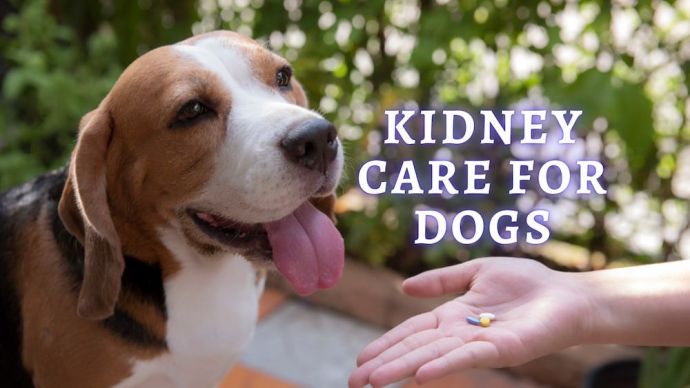 Dog Veterinary Tips Kidney Care for Dogs: How to Improve Kidney Function in Dogs? (Vet Advice)
Dog Veterinary Tips Kidney Care for Dogs: How to Improve Kidney Function in Dogs? (Vet Advice) - 731
- 0
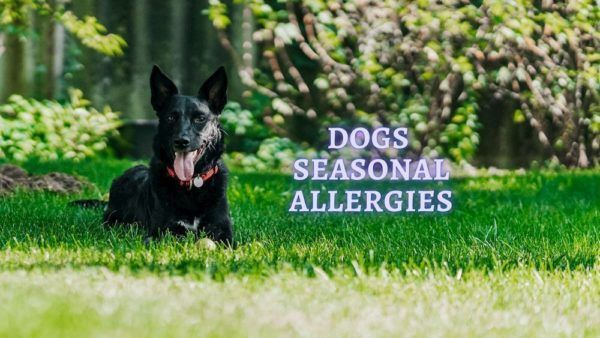 Dog Veterinary Tips Dogs Seasonal Allergies: Causes, Symptoms, Treatment, and Prevention
Dog Veterinary Tips Dogs Seasonal Allergies: Causes, Symptoms, Treatment, and Prevention - 333
- 0
 Dog Care My Dog Keeps Scratching His Mouth: Reasons Why Your Dog Scratching Face
Dog Care My Dog Keeps Scratching His Mouth: Reasons Why Your Dog Scratching Face - 17168
- 1
 Dog Care Why Is My Dog Bleeding From Its Butt? Causes and treatment of rectal bleeding in the dog
Dog Care Why Is My Dog Bleeding From Its Butt? Causes and treatment of rectal bleeding in the dog - 15104
- 0











